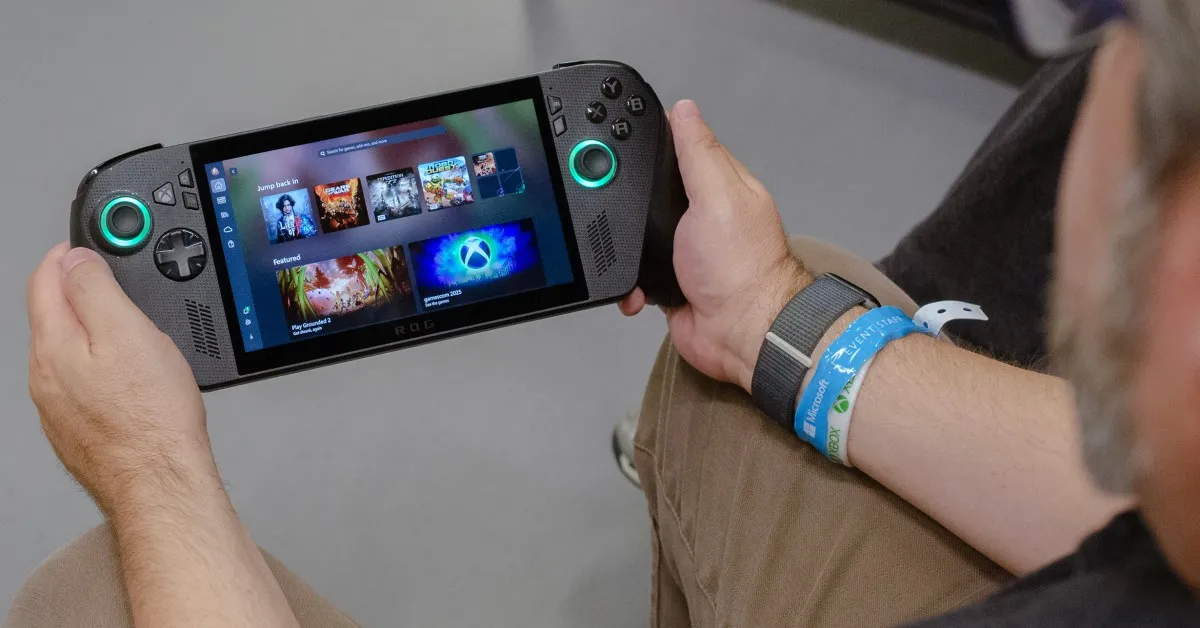
When Microsoft announced the launch date for its first handheld devices in collaboration with Asus, the absence of price details initially sparked optimism among fans. Many hoped that the rumored prices were inflated and that Microsoft would offer subsidies similar to those it provided for the Xbox console. The expectation was that these handhelds would disrupt the market, much like the Steam Deck did with its competitive price of $399 in 2021. Unfortunately, this optimism was misplaced. Instead, the flagship handheld, known as the ROG Xbox Ally X, is priced at a staggering $1,000, while a less powerful model, the ROG Xbox Ally, starts at $599.
On Thursday, Microsoft and Asus officially opened preorders for the ROG Xbox Ally X and ROG Xbox Ally, with prices set at $999 and $599 respectively. For European customers, the prices are €599 and €899, while in the UK, they are £499 and £799. Australian gamers will pay $799 AUD for the base model and a hefty $1,599 AUD for the flagship version. These prices suggest that these handhelds are positioned more like gaming PCs rather than traditional consoles, which aligns with their architecture as they operate on a Windows platform. Essentially, the Xbox brand serves merely as an interface for games and services layered atop a Windows machine.
This new pricing strategy signifies a potential shift in the gaming console landscape. Historically, consoles would decrease in price following their launch, but this trend seems to be reversing. As noted by my colleague Andrew Webster, the conventional wisdom that advised against buying a console at launch has flipped. Early adopters of the current generation of gaming consoles have found themselves in a favorable position, as prices continue to rise rather than fall.
Moreover, Microsoft and Sony have traditionally subsidized their consoles, selling them at a loss to recoup costs through game sales and services. However, this strategy appears to be evolving. For instance, the price of the Xbox Series X has risen by $150 this year, largely attributed to tariffs. Despite these price hikes, the number of Xbox units sold has decreased in recent generations, and the anticipated success of the Xbox Game Pass subscription has not met expectations.
As the gaming industry evolves, the concept of the Xbox may shift dramatically. Microsoft’s approach to maximizing game sales has led to the decision to broaden the availability of its flagship franchises beyond just Xbox or PC, now also appearing on rival platforms like PlayStation. This shift hints at a future where the next Xbox may consist of a range of PCs rather than a traditional console. While the physical console may not disappear entirely, it could become more of a luxury item, tested by Microsoft to understand how much its fanbase is willing to spend.
In today’s economic climate, consumers are facing rising costs for essential goods, which complicates the purchasing landscape. Yet, there is a strong desire for escapism and nostalgia, leading some to invest in high-end gaming products. The market has seen extravagant items like a $1,000 Lego Death Star and a $1,500 transforming Transformers Megatron, indicating that companies can indeed find success in niche markets.
Historically, gamer discontent has kept console prices in check. Despite rising development costs, companies have hesitated to significantly increase prices. The memory of Sony’s announcement of the $599 PS3 has lingered in the industry, causing hesitation among console makers to breach that psychological price barrier. Nevertheless, recent shortages and tariffs have provided a rationale for price increases, and it seems unlikely that they will revert to previous levels.
As the gaming industry adapts, we may witness a new era of console pricing. The potential success of the Xbox Ally could influence the pricing strategies of future consoles, including the next PlayStation. However, with statements from Xbox head Phil Spencer suggesting that a $1,000 console may not be the ideal route to market growth, it raises questions about the future direction of the Xbox brand. Rather than focusing solely on console sales, Microsoft might prioritize expanding its gaming ecosystem across various platforms while garnering licensing fees from niche hardware manufacturers catering to dedicated fans.